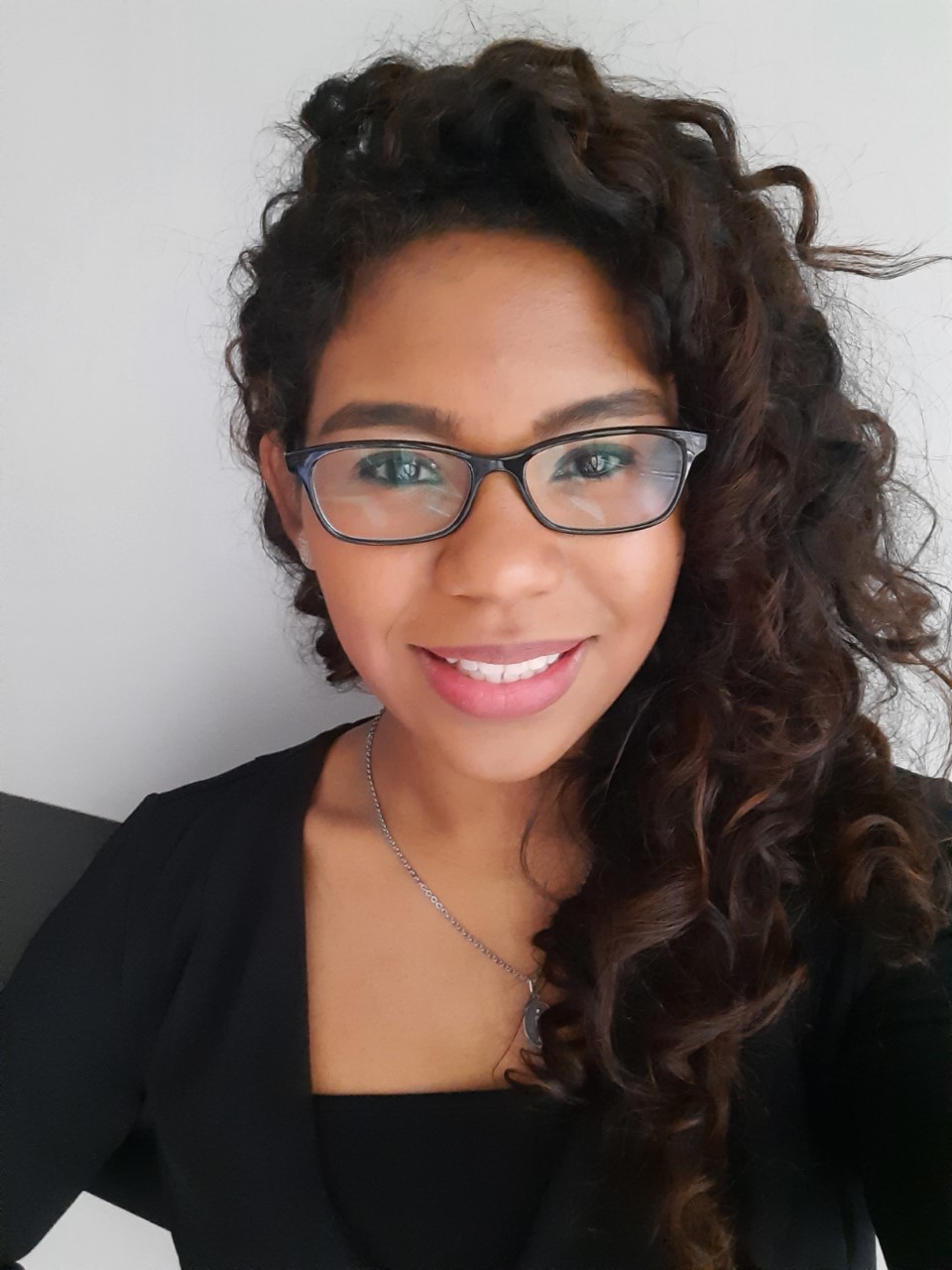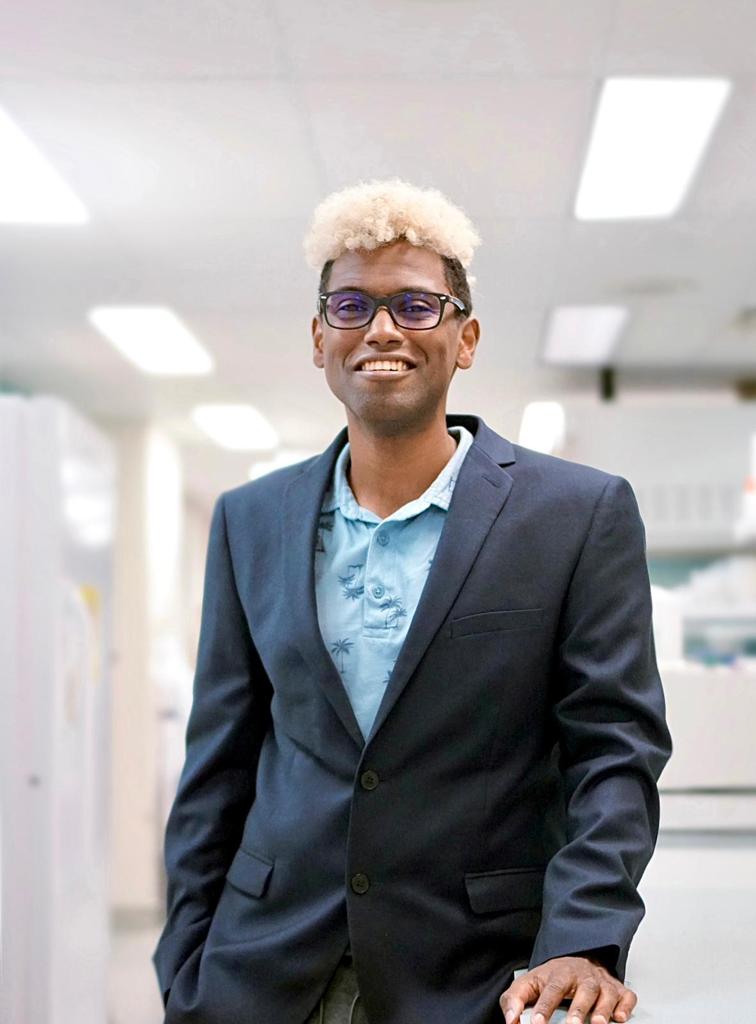The launch of the CIHR Research Excellence, Diversity, and Independence (REDI; pronounced “ready”) Early Career Transition Award was designed to facilitate the transition of promising researchers who self-identify as Black or racialized women into independent research faculty positions in Canadian academic, health system and research institutions. The competition sought to address underrepresentation in Canadian faculty, and is directly aligned with the Government of Canada and Tri-agency priorities to address systemic racism, sexism, and discrimination in Canadian institutions.
Today, it was announced that two of HLI’s postdoctoral fellows, Dr. Ana Hernandez Cordero and Dr. Yasir Mohamud, will each be receiving up to $660,000 to support their training to become independent investigators over the next 3-6 years.
The REDI award provides salary support for the next few years of their postdoctoral training, as well as matching funds that can be leveraged towards their independent research program.
What is your research about?

Ana: The current focus of my research is on epigenetic aging, a marker of biological age, and its relationship with Chronic Obstructive Pulmonary Disease (COPD) in People Living with the Human Immunodeficiency Virus (HIV). My findings have shown for the first time that the lungs of people living with HIV and COPD are characterized by age acceleration. More recently, my work has focused on whether other modifiable environmental factors (such as exercise and cannabis smoking) can affect epigenetic aging and change the risk of age-related diseases. As an independent researcher, the REDI award will allow me to continue pursuing my interests in investigating the epigenetic and molecular regulation of aging and the impact of aging in the development and progression of complex chronic diseases. I will apply a computational approach to multiple Canadian cohorts to advance the current knowledge on aging in a way that reflects the diversity of the Canadian population.

Yasir: As an early career investigator, my research is focused on establishing a translational virology program that leverages my unique expertise in molecular virology and cell biology to explore novel and effective therapeutic strategies against RNA viruses which are broadly responsible for the world’s greatest pandemics. My current research interest is to better understand how cardiotropic viruses, such as coxsackievirus B3, cause heart failure in at-risk individuals. Additionally, my research will explore the interactions between everyday viral infections and chronic illnesses of the ageing population, with relevance to cardiovascular and neurodegenerative diseases, eventually expanding to include other emerging viral pathogens, such as coronaviruses.
How will this award help you transition to an independent academic career after your postdoctoral training?
Ana: In the short term my goal is to continue building a strong foundation and track record in the aging field so that I can establish an independent laboratory after my postdoctoral training. The support of the REDI award will be central to continuing my training at the UBC Centre for Heart Lung Innovation, a world-renowned research institution. In the next few years, I expect to grow my professional network, establish myself as a field expert by advancing the field of aging in the context of health and human disease, and start securing funding for my independent research lab.
Yasir: With the support of the CIHR REDI Award, I see myself transitioning to an early career academic position within the next 2-3 years. The REDI Award will provide me with the necessary mentorship support, networking and leadership opportunities, and initial start-up funds to help establish my independent laboratory in Canada. I am eager to embark on this next phase of my academic career, transitioning to independence and making significant contributions to both health research and education in Canada.
How do you see this new CIHR initiative addressing underrepresentation in Canadian faculty?
Ana: As a racialized woman in biomedical sciences, I recognize the current underrepresentation of racialized groups in research and academia, and its negative impact on public health. Through the support of the CIHR REDI award, racialized young researchers, such as myself, have a unique opportunity to help close this gap to fully reflect the interests of Canadians. In my view, initiatives that promote the recruitment of underrepresented faculty through tangible actions (mentorship, networking, and matching funds), such as the CIHR REDI award and our own UBC Black Faculty Cohort Hiring Initiative, are contributing to increased representation of Black faculty, and other racialized groups across Canadian universities. Recognizing the importance of different voices, perspectives, and backgrounds and the rich experiences and contributions that diverse people can offer, I am dedicated to studying the under-researched aspects of tobacco smoking: sex and gender, racialized groups, such as Indigenous, as well as LGBTQ+ communities. As I build my laboratory, I aim to implement practices to promote EDI and to create a safe, inclusive, and creative environment. I will encourage the free flow of ideas in a constructive and respectful manner, and promote continuing EDI education within my research team in order to overcome individuals’ unconscious biases, amongst other approaches.
Yasir: In recent years, I have seen a visible effort and commitment to addressing systemic inequities at Canadian institutions through thoughtful and strategic initiatives. Among these, the CIHR REDI program promises to have a strong and meaningful impact in addressing inequity by providing support to those most underrepresented in our academic communities. As an underrepresented individual, I have faced unique challenges and obstacles in my academic journey but I am grateful to say that the research environments where I have worked have been inclusive towards all and provided support to diverse trainees. I’m proud to see UBC and the Centre for Heart Lung Innovation working together with initiatives, such as the CIHR REDI program, to recruit and retain underrepresented researchers like myself. Building on the success of this program, I believe we have the tools and support to build a diverse and thriving research environment not only for students and trainees but also early career researchers and young investigators seeking to establish independent research programs. Although we face many challenges as early career researchers (for example, access to funding and research space), I believe our commitment to EDI initiatives will bring together a diverse group of thinkers and leaders that can share unique perspectives in addressing the obstacles ahead. For this reason, I hope to build an inclusive research team that values and promotes diversity in my future independent lab.
